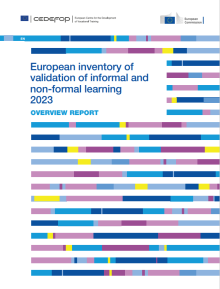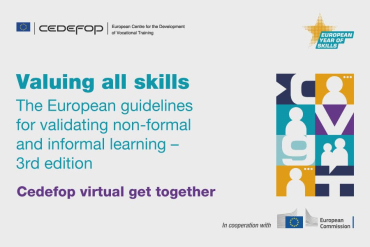Cedefop’s European inventory on validation of non-formal and informal learning and its latest data were featured at the 5th Validation of Prior Learning biennale that took place in Kilkenny on 6 - 8 May.
Cedefop was also involved in the organisational committee of the conference, which gathered in Ireland around 400 participants from the five different continents.
The event focused on four main themes:
- validation and the individual;
- validation and skills;
- validation and inclusion;
- validation and mobility.
The conference provided an opportunity for Cedefop to showcase its work on validation, especially as the latest data of the European inventory on validation of non-formal and informal learning recently became available.
Cedefop’s Ernesto Villalba opened the conference with a brief recollection of previous biennales and an introduction to the main theme of the conference: ‘People, validation and power: democracy in action?’
Referring to the European Year of Skills, he highlighted the importance of treating skills not only as a means to get a job, but also as a tool that empowers individuals to fulfil their potential in society.
During one of the event’s panel discussions, the main trends in different jurisdictions were discussed, as well as lessons learnt and how impact can be measured, highlighting the importance of research and collecting both qualitative and quantitative data.
One of the conference’s main conclusions is that in very different contexts there are similar challenges; while we can learn from each other’s experience in the efforts to make validation a reality, any system development needs to be connected to the local context needs and realities.
Discussions in the various sessions provided an opportunity to gather evidence and establish connection with other policy makers and researchers working on validation. Microcredentials, use of digital technologies and artificial intelligence (AI) for collecting information on skills and qualifications as well as in developing new forms of assessment and the use of National qualification frameworks (NQFs) also came up as relevant topics for reflection.


